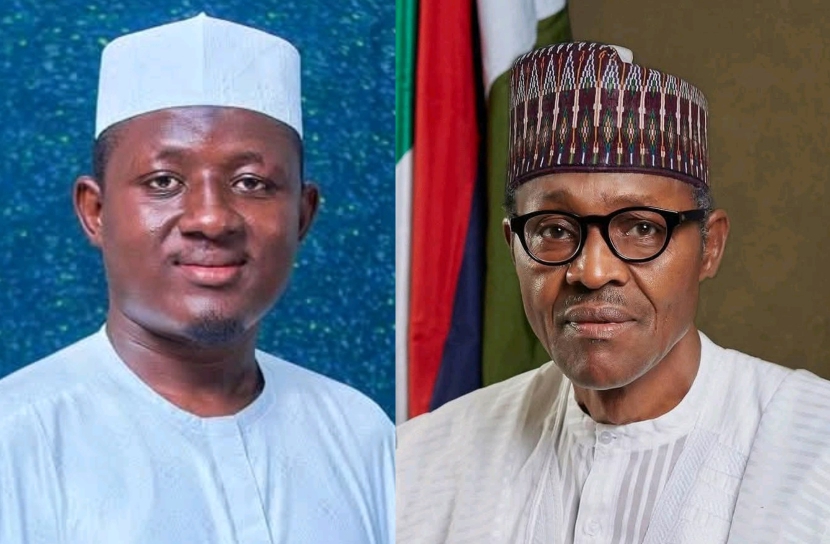A Legacy of Impactful Leadership of Muhammadu Buhari from 2015 to 2023

By Abdulrazak Ahmad Jibia
Former President Muhammadu Buhari, who served from 2015 to 2023, left a legacy of transformative infrastructural, educational, security, and socio-economic reforms across Nigeria. His administration prioritized national development, economic recovery, and social inclusion, laying down foundations for long-term national growth.
In Education, Buhari established new institutions including Maritime University (Delta), Army University (Biu), University of Transportation (Daura), and Airforce University (Bauchi). Federal Colleges of Education were founded in six states, alongside the Federal Polytechnic in Daura. Over ₦200 billion was released to tertiary institutions through TETFUND—marking the highest educational intervention in the nation's history. He also promoted digital education and provided grants to build ICT centers in selected universities and secondary schools.
In Healthcare, key projects included the Airforce Referral Hospital (Daura), Women and Children Hospital (Daura), and National Cancer Centers in Abuja and Lagos. The revitalization of 10,000 primary healthcare centers and the recruitment of over 60,000 community health workers expanded grassroots healthcare. His administration launched the Basic Health Care Provision Fund (BHCPF), ensuring access to free care for vulnerable populations.
Infrastructure Development made remarkable progress with completed bridges like the Second Niger Bridge and Loko-Oweto Bridge, and extensive roadworks including Lagos-Ibadan, Abuja-Kaduna-Kano, and Enugu-Port Harcourt expressways. Port revitalization included Baro Inland Port and the Eastern Port. Aviation was modernized with new international terminals in Lagos, Abuja, Port Harcourt, and Enugu. Nigeria’s rail sector saw major strides with the delivery of Abuja-Kaduna, Itakpe-Warri, and Lagos-Ibadan lines, and a train assembly plant in Ogun.
In Power, hydroelectric plants like Kashimbilla and Dadin Kowa were completed, while Mambilla Hydro project was initiated. Buhari launched independent power projects for markets and universities. Over 45 critical power transmission projects were completed, including substations and national grid expansions.
Economically, Buhari's administration supported agriculture through the Anchor Borrowers' Programme, which empowered millions of smallholder farmers and significantly increased rice production, reducing imports. The Presidential Fertilizer Initiative revived 15 moribund plants, ensuring national access to affordable fertilizers.
Trade and Investment grew with incentives that attracted WACOT (Kebbi), OLAM (Kaduna), and SUNTI (Niger)—the largest rice, feed, and sugar mills in Africa respectively. Buhari also signed the African Continental Free Trade Area (AfCFTA) agreement, opening Nigeria’s economy to wider African markets.
Social Intervention Programs included Npower, School Feeding, Conditional Cash Transfers, and TraderMoni. A ₦30,000 minimum wage was approved, while millions of Nigerians benefitted from Farmers Moni, MarketMoni, and COVID-19 economic relief programs.
Pension and Gratuity reforms ensured settlement of backlogs for civil servants, police retirees, airways pensioners, and Biafra war veterans. The National Pension Commission (PenCom) was also strengthened to increase coverage.
Security and Defense witnessed substantial investments. Buhari acquired new military aircraft, naval vessels, and armored vehicles, reequipping the armed forces. He established the Operation Safe Corridor for deradicalizing repentant insurgents and implemented the Nigeria Police Trust Fund to improve police welfare and equipment.
Digital Economy was boosted by the creation of the Ministry of Communications and Digital Economy, launch of the Nigeria Startup Bill, and development of the National Digital Economy Policy. Over 20,000 young Nigerians were trained in digital skills, with innovation hubs springing up in several states.
In Oil and Gas, Buhari broke a 20-year jinx by signing the Petroleum Industry Act (PIA) into law, setting a new legal framework for oil sector reform. Oil exploration was expanded to inland basins in Bauchi and Gombe. The Nigerian National Petroleum Corporation (NNPC) was commercialized into NNPC Limited.
Border Infrastructure and Regional Integration improved under his administration. Dozens of integrated border facilities were completed, and the ECOWAS passport system was upgraded. Cross-border road networks connecting Nigeria to Niger and Cameroon also received federal attention.
Housing Projects under the National Housing Programme delivered thousands of housing units across 34 states and the FCT, while the Buhari Housing Scheme targeted low-income earners.
Water Supply and Irrigation projects included Kashimbila Dam (Taraba), Ogwashi-Uku Dam (Delta), Sabke/Mashi Project (Katsina), and the revitalization of regional waterworks in Bayelsa and Sokoto.
Through economic hardship, global recession, and a pandemic, Buhari's administration stood on the pillars of infrastructure, anti-corruption, security, and social investment. Despite criticisms, his era remains one of extensive physical and institutional rebuilding.
This article was written by Abdulrazak Ahmad Jibia, a freelance journalist and media strategist.

